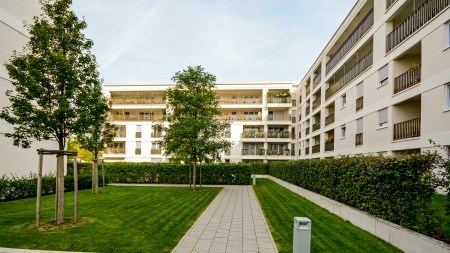Sectional title living has become a very popular option for those living within South Africa. The added security of staying within a gated community certainly has its appeal, but the limitations of living under the authority of a Body Corporate or HOA might make buyers more hesitant about buying into a sectional title.
According to Regional Director and CEO of RE/MAX of Southern Africa, Adrian Goslett, buyers will need to weigh up the pros and cons of both options before making a final decision. “To fully understand the differences between these types of property ownership, it is important to define them. Freehold or full title ownership means that you have full ownership rights of the property, which includes the building and the land on which it is built. These kinds of properties include free-standing houses, cluster houses, residential property used for business purposes, and smallholdings. Sectional titles, on the other hand, describe separate ownership of units or sections within a complex or development. These are collectively known as units and can be semi-detached houses, townhouses, flats or apartments, and duet houses,” Goslett explains.
There are considerable differences with regard to investing in the two types of properties. Below, RE/MAX of Southern Africa shares some pros and cons to both forms of ownership:
Sectional Title Ownership
Pro: security
Most sectional title developments have excellent security around the perimeter and at the entrance of the development, which is all included in the monthly levies. Living near your neighbours is also perceived to be more secure than living on a freehold property.
Con: levies
Owners of sectional title units pay a monthly levy that includes the maintenance of the common property, wages and salaries of cleaners, security and other staff, as well as any water and electricity required for the common property. The cost of maintaining pools, tennis courts, communal park areas and clubhouses in the development is also shared. However, sectional title scheme holders will be liable for the debt of the Body Corporate, so buyers should ensure that the estate is being managed correctly and that the financial statements of the Body Corporate are in order.
Pro: communal living
In general, communities living in sectional title schemes boast close-knit communities and foster far greater interaction with neighbours when compared to freehold neighbourhoods.
Con: lack of freedom
Owners of sectional title units do not have the freedom to make improvements to their property. Those who want to renovate, need to get approval from the Body Corporate before they can begin building. You will also need to comply with the management rules and conduct rules as laid out by the Body Corporate.
Freehold Ownership
Pro: independence
Owners are in complete control and are financially responsible for the property in its entirety. This means that you are free to renovate your home however you choose as long as you have received planning approval from the relevant municipality.
Con: less security
With freehold properties, owners are entirely responsible for their own security – you need to pay to secure the perimeter, and often for an armed response security company to be on call should an intruder enter the premises.
Pro: more space
Freehold properties often have larger grounds than sectional title units. Because you are not purchasing part ownership of the property, the whole plot on which the property stands belongs to you alone. This often translates into larger gardens and more space between you and your neighbours.
Con: varying costs
The owners of freehold properties have to pay for the general upkeep of the home, including the pavement, garden and exterior of the home. Unlike the levies paid in sectional titles, these costs are not fixed and can be trickier to budget for unless you hire a professional garden service to take care of your property on a regular basis.


